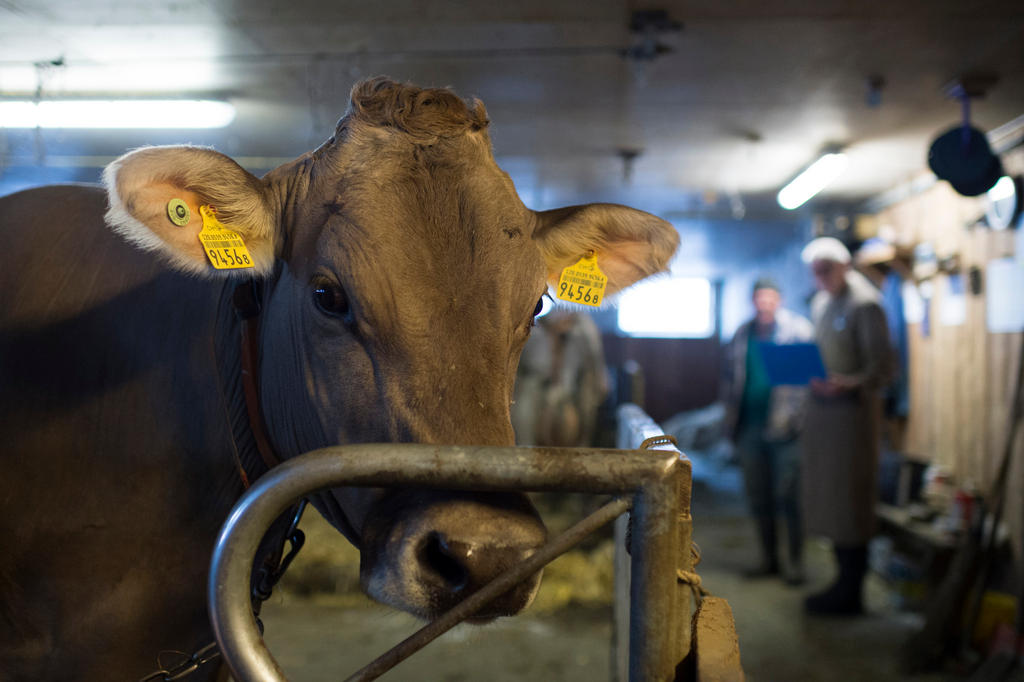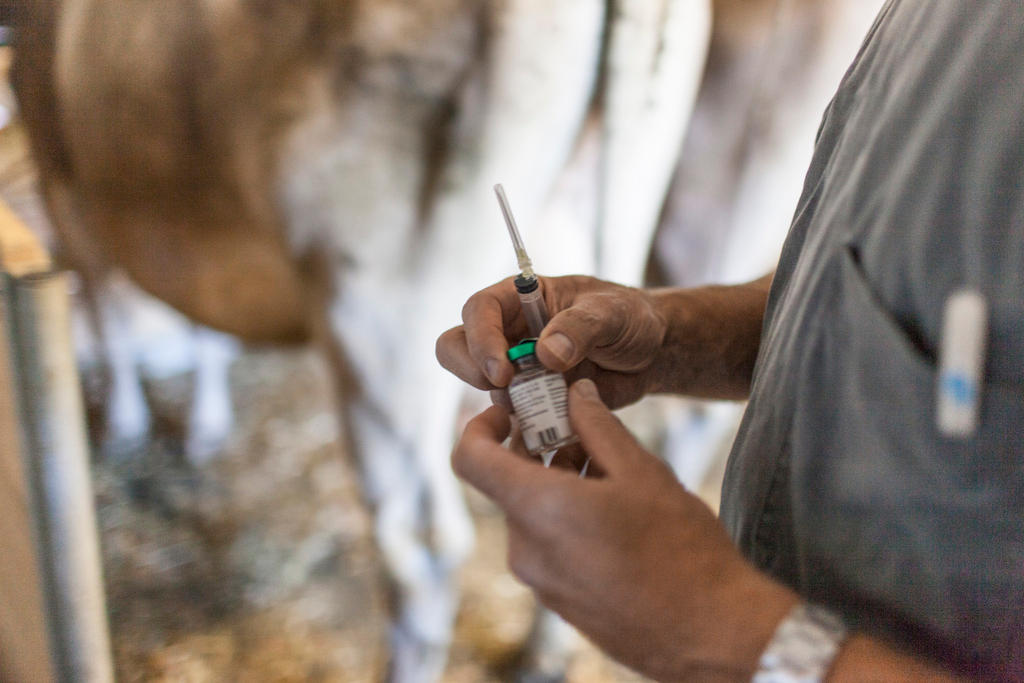In ten years, Swiss agriculture reduces antibiotics usage by half

The use of antibiotics in the Swiss agriculture sector has been cut by almost half over the past decade, claims the Swiss Farmers’ Union (SFU). Although work remains to be done, they called on Monday for similar efforts in the human medical realm.
In a press release to mark the beginning of Antibiotic Awareness WeekExternal link, which Switzerland is celebrating in conjunction with the World Health OrganizationExternal link (WHO), the SFU said the total quantity of antimicrobic substances used in treatment of livestock had dropped by 45% since 2008.
This is due to various factors, it said: firstly, a recent ruling has banned the usage of critical antibiotics when it comes to livestock. This excludes the use of any preventative treatment or treatment that has not been preceded by a veterinary consultation.
In the case of poultry and eggs, it said, Switzerland uses much less antibiotics than other countries largely owing to the stringent measures of hygiene that are in place across the country.
Meanwhile, milk producers have also managed to cut down by privileging complementary medicines and by selective breeding, which also helps to prevent the development of resistances, a problem that is a cause of concern for animals as well as humans.

More
How a teen is taking on antibiotic resistance
Slowing down resistance
The SFU noted, however, that reducing antibiotic quantities is not in itself enough to stamp out the issue of resistances developing, a point highlighted by the Federal Office of Public Health last week.
The health office called on farmers to rethink industrial farming conditions, as too many animals packed together can result in the development of fatal methicillin-resistant Staphylococcus aureus (MRSA) infections.
The Antibiotic Awareness Week, which runs from November 13 to 20, comes as officials in Switzerland and elsewhere are warning about the fatal dangers of a growth in antibiotic resistance among humans.
In Switzerland, there are an estimated several hundred deaths from resistant bacteria each year, officials said at a media conference last week. And although resistance cannot be stopped, it can be slowed down, which is why antibiotics should only be prescribed when absolutely necessary, the health office warned.
swissinfo.ch and agencies/dos

In compliance with the JTI standards
More: SWI swissinfo.ch certified by the Journalism Trust Initiative



You can find an overview of ongoing debates with our journalists here. Please join us!
If you want to start a conversation about a topic raised in this article or want to report factual errors, email us at english@swissinfo.ch.